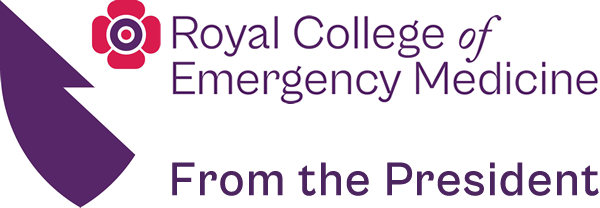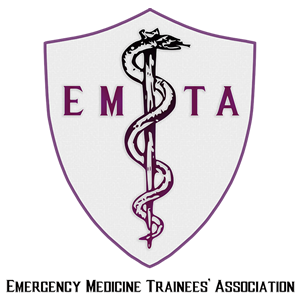The 2021 iteration of the EMTA survey launched at the virtual trainee conference on 24 November and all trainees should now have received a link to the survey in their inboxes. Initial interest and uptake have been good and at the time of writing, we are making good progress towards our ambition of 1000 trainees completing the survey. An excellent response rate – something that is increasingly difficult to achieve with the survey fatigue we all feel – is vital to making the data as impactful as possible. For me, there are two main ways to make sound and convincing arguments. The first is through stories and narrative; trainees provide EMTA with this through the regional reps network, the TellEMTA button on our website, and by emailing the chair directly and our reps have made good use of this valuable source of information to drive work and change withing RCEM and beyond.
Complementing the power of narrative is data. Data can be extremely impactful when making arguments and advocating for the speciality and the patients it serves — the RCEM Winter Flow Project is an excellent contemporary example — particularly when points need to be made succinctly and there are many other competing priorities. To move from advocacy to, what we hope to be increasingly effective, data-driven advocacy we need high data that is focused on the aims of EMTA and the needs of emergency medicine trainees. Over the past year the EMTA survey team, with the support of TERN, have refined our survey so that it can best do this by:
- Reducing the length of the survey, it can now be done in around ten minutes. This will hopefully remove barriers to completion and increase the response rate.
- Working with the data, and the teams behind, the GMC National Training Survey. By better understanding this existing data we have been able to reduce unhelpful duplication.
- Working with the EMTA reps across RCEM to understand what data they need to best work for trainees on their committee.
- Analysing the previous EMTA surveys to understand trends that we need to continue to monitor and gaps in the questions we are asking.
This work has led to a number of outputs that helps to explain the rationale for the decisions made around the 2021 survey. To accompany the 2020 survey report we produced a blog for the St Emlyns site which discusses the headline findings:
- Around three-quarters of trainees plan on taking a locum or substantive consultant job after completing training, only 28.1% plan on working full time as a consultant.
- Most trainees felt that their educational supervisor was effective and added value to their training.
- Over one-third of trainees report having no access to SPA time, despite RCEM recommendations.
- The frequency of regional teaching found to correlate with the highest attendance is monthly. The frequency of local teaching found to correlate with the highest attendance is weekly.
- Nearly 1 in 5 trainees felt unable to drive home safely from work yet the vast majority had no access to somewhere to sleep after a night shift.
- The majority of trainees completing training in emergency medicine do not feel competent to manage paediatric emergencies.
- Bullying, harassment and undermining are described as ‘endemic’ and ‘widespread and accepted practice’ in UK emergency medicine. The data across the past three EMTA surveys and the free-text responses do not make for pleasant reading.
The bullying, harassment and incivility data in particular caught attention, and supports the ongoing RCEM project: RespectED which aims “to raise awareness and tackle the rise in toxic behaviours such as bullying, harassment and incivility between staff in Emergency Departments”. To try and keep the momentum of discussion around this problem, which will be key to supporting positive change, I have written a blog for RCEMLearning which outlines what bullying is and why it is an emergency department problem.
Identifying problems is one thing that the EMTA surveys have helped with, but more importantly, this has helped to drive change. Breaks and rest are moving to be a cultural expectation within the speciality, as they should be with the clear links with performance, safety and sustainability. This change is clearly multifactorial, but the EMTA Rest campaign and the Rest and Rota charter, both driven by data from the surveys, have played a part.
The 2021 survey is collecting data until the 11th of January and it is in the interest of everyone working in emergency care to encourage, and support, trainees to complete it. I say this because while the EMTA survey is trainee specific, it is part of the specialities drive towards sustainable working practices for all clinicians working in emergency medicine which is currently exemplified by retention being central to the RCEM CARES campaign.
So, what can you do to help? If you are a trainee and haven’t done the survey yet, then maybe use the first ten minutes of educational development time to complete it. Or the first ten minutes of your next clinical shift. If you are a senior decision-maker co-ordinating a department, ask your trainees if they have done the survey and if not empower them to spend ten minutes doing so before seeing their next patient. If you are an educational supervisor, has your trainee done the survey? If you are the chair of EMTA, have you done the survey? No? Better get on with it then time is running out.
Dan Derbyshire
EMTA Committee Chair


